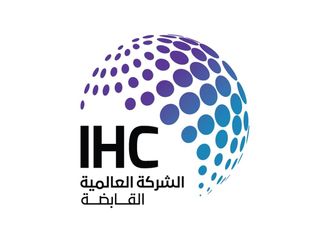Someone once said, "50 per cent of the world's population is women, and the other half, have mothers."
Recently, two major articles were widely carried on women in Islamic fin-ance and highlighted the often heard issues: underrepresentation, interaction with male bankers, travel for meetings in conservative countries, from women scholars to women's branches, and so on.
If Islamic finance (IF) is about inclusion, where are the sisters?
Stage one of IF has been a male dominated industry. Stage two, march towards $2 trillion (Dh7.3 trillion), will require addressing a major bottleneck, lack of qualified people, and, it's here, women can have an important role.
There are numerous studies on poverty reduction in the third world, comprising almost all lof the 57 Muslim majority countries, emphasising the role of women as effective managers in raising and educating children, household finances, dealing with stakeholders (extended families) if they are empowered with the right opportunity tools.
It is also important to separate cultural (mis)influence versus references to women in the Quran, the Sunnah of the Prophet (PBUH), and the leading roles of the Prophet Mohammad's wives, Khadija and Ayesha.
Eroding family structure
Finally, to those who say Sharia finance is a slippery slope of the loss of women's rights or eroding family structure is not only ignorant, but also against the wealth of studies by, say, World Bank/IMF. In Muslim countries where Sharia finance exists, like Bangladesh, Indonesia, Turkey and Pakistan, there have been women country leaders as prime ministers.
To date, in the US, we have yet to have a woman president or vice-president.
Stage two of Islamic finance is corporate social responsibility, including encouraging workplace diversity and rights of employees. It can be said where countries have achieved the status of knowledge or service based, the role of women has been elevated to managerial positions.
Thus, issues related to continuing education scholarships, working remotely or telecommuting, maternity leave and sabbaticals without penalty, family healthcare coverage, and equal or equitable pay are not luxuries, but commonly found in employment contracts.
How much of the above are offered to women in [Islamic] financial institutions (IFIs) in the GCC?
Beyond women in meaningful positions, it would be interesting to know how many women-owned businesses ask for and receive financing compared to male-owned businesses? An important facilitator for successful entrepreneurship is the role of equity financing in the country. Yes, IFIs have women designated branches and Ladies Banking, but that may be more for deposit taking and offering investments and wealth management solutions.
Are women designated branches and banking most profitable for an IFI?
Counted on one hand
IFIs role as financial intermediaries in deploying surplus capital from, say, women's branches for non-real estate projects can be "counted on one hand."
Thus, can it said that IFIs are driving Muslim entrepreneurs towards Riba-based lending for non-realty financing?
In providing Islamic fin-ancing to more women-owned businesses, it may have an interesting multiplier effect.
Obviously, as these businesses grow, they will encourage women to apply for jobs, internships by college students, women-owned businesses acting as suppliers and vendors.
In recent years there have been media stories concerning corruption and fraud at IFIs, and it usually involved men. There have been numerous studies showing that when women are in charge of family finances, the outcome includes a more stable home environment and educated children.
This leads to stability and profitable growth. Thus, women are more trusted and have good work ethics.
During the petro-liquidity spike years, there was much turnover at IFIs due to unusually attractive compensation packages and shortage of talent. Such job hopping increases banks' cost structures as people need to be trained and integrated and adjust to the IT systems.
I suspect the percentage of men pursuing paycheque employment was much higher than women.
It would be interesting to see an index provider create a global index of women led CEO companies, call it Women Businesses Leaders Index (WBLIV) and pronounced as We-Believe index, for the following: Performance compared to the world Islamic index over a market cycle of 10 years, employee turnover over the market cycle, awards received by the companies and CSR activities of the companies.
Western women
If western women can lead public companies on the above parameters, enhancing shareholder value, they can also lead IFIs.
Cultural male dominance and mis-influence may take a generation to address, but the need of the hour entails a more holistic approach to encourage women to reach managerial positions.
It's well recognised that women are agents of change in families and, if given the opportunity and encouragement, they will contribute to IF 2.0.
The writer is Global Head of Islamic Finance at Thomson Reuters. The views expressed are his own and do not reflect that of his organisation or Gulf News.











